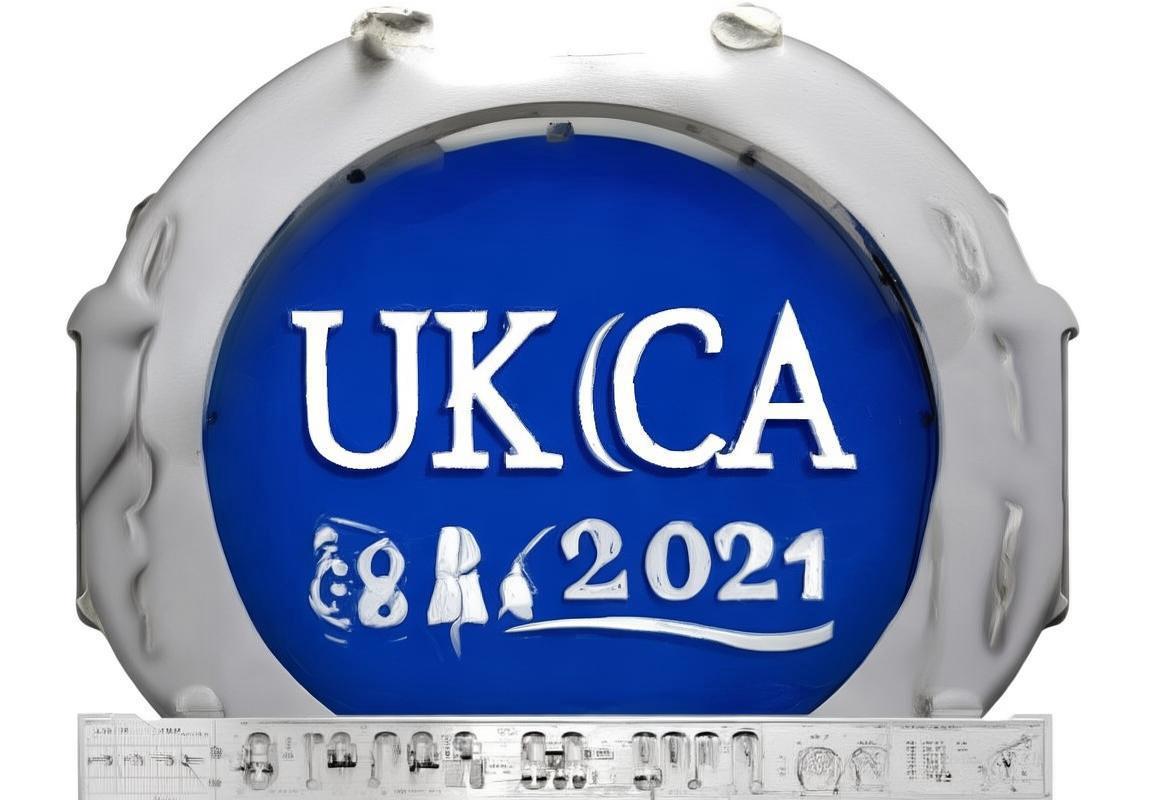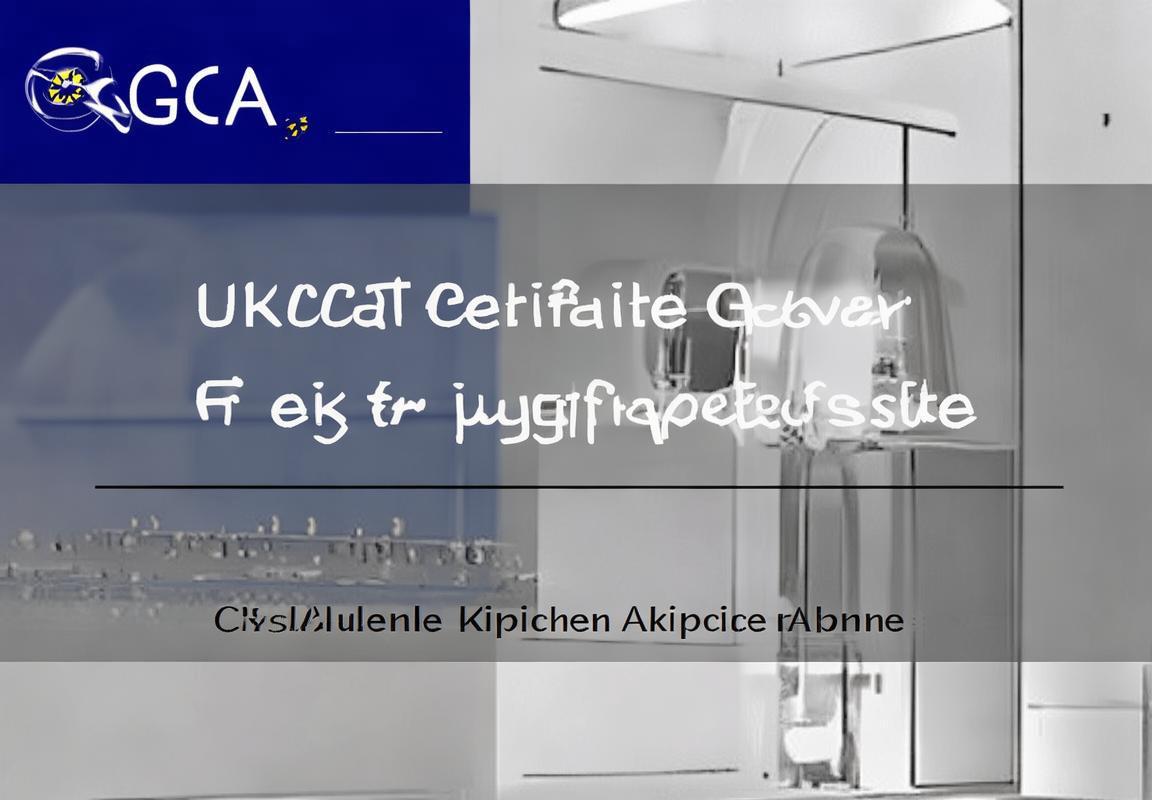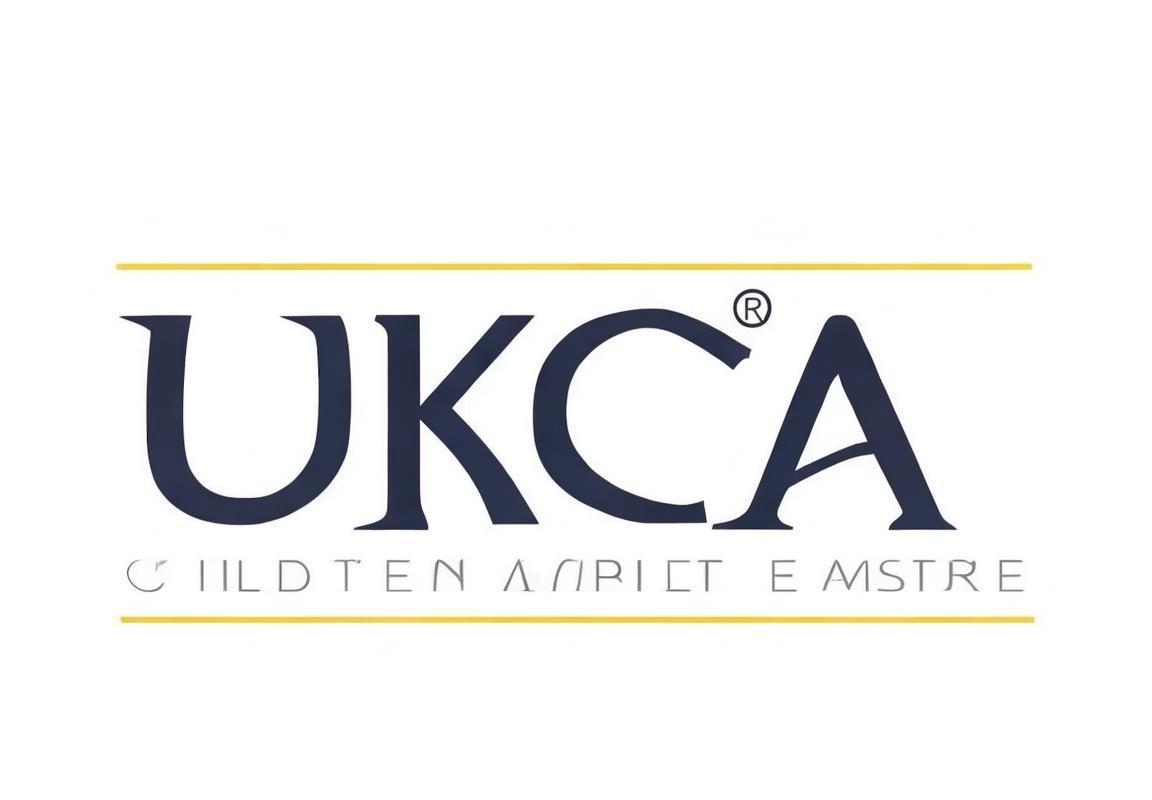In the ever-evolving landscape of kitchen appliance manufacturing, staying ahead of the curve is crucial for brands aiming to capture a share of the lucrative EU market. With the introduction of the UKCA (United Kingdom Conformity Assessment) mark, exporters are faced with a new set of challenges and opportunities. This certification, which serves as a gateway to the EU market, has sparked a wave of interest in turnkey solutions that streamline the process and ensure compliance. In this article, we delve into the intricacies of the UKCA certification, its impact on the kitchen appliance industry, and the strategic benefits it offers to brands looking to expand their reach across Europe.
Understanding the UKCA Certification: What It Means for EU Market Entry
The UKCA certification, or United Kingdom Conformity Assessment, has become a pivotal aspect for companies looking to enter the European Union market, especially following the UK’s departure from the European Union. This certification ensures that products meet the necessary safety and regulatory standards set by the EU. Understanding the intricacies of UKCA certification is essential for kitchen appliance manufacturers and distributors who are keen on expanding their reach into the European market.
The UKCA mark is a symbol of compliance with the UK’s regulations, which are largely aligned with those of the EU. However, there are certain differences that companies need to be aware of to ensure their products can pass the necessary assessments. For kitchen appliance brands, this means adhering to standards related to electrical safety, energy efficiency, and consumer protection.
One of the primary implications of UKCA certification for EU market entry is the need for compliance with both UK and EU regulations. This dual compliance is crucial because while many standards are similar, there are variations in specific requirements that can affect product design, labeling, and the overall certification process.
For instance, kitchen appliances like dishwashers, ovens, and refrigerators must meet strict energy efficiency guidelines in both the UK and the EU. While the basic principles may be the same, the specific thresholds and testing procedures can differ. Companies must therefore ensure that their products are designed and tested to meet both sets of criteria.
The certification process itself can be quite complex. It involves thorough evaluation of the product’s technical documentation, performance, and safety features. Kitchen appliance manufacturers need to provide evidence that their products conform to the relevant EU Directives, such as the Low Voltage Directive, the Electromagnetic Compatibility Directive, and the Energy Labelling Directive.
Moreover, the UKCA certification requires that products are manufactured in accordance with the regulations of the UK and the EU. This means that manufacturers must adhere to the CE marking requirements, which are a prerequisite for the UKCA mark. The CE mark indicates that a product meets all the essential health, safety, and environmental protection requirements of the EU.
In practical terms, kitchen appliance companies must engage with authorized UKCA certification bodies. These bodies conduct the necessary assessments and issue the certification once they are satisfied that the products meet the required standards. The certification process can be time-consuming and costly, particularly for companies that are not well-versed in the complexities of EU and UK regulations.
Despite these challenges, the UKCA certification offers several advantages for companies looking to enter the EU market. Firstly, it provides a clear pathway for compliance, reducing the risk of product rejection or recall. This is particularly important given the stringent enforcement of product safety standards in the EU.
Secondly, the UKCA mark can enhance brand reputation. Consumers in the EU are increasingly seeking products that are certified to meet high safety and quality standards. By obtaining the UKCA certification, kitchen appliance brands can signal to consumers that their products are reliable and meet the necessary regulatory requirements.
Thirdly, the certification process can also help companies streamline their operations. By understanding and adhering to the EU and UK regulations, companies can ensure that their products are not only compliant but also efficient and cost-effective. This can lead to better product design and innovation, as well as improved supply chain management.
In conclusion, the UKCA certification is a critical step for kitchen appliance brands looking to enter the EU market. It signifies compliance with both UK and EU regulations, which are essential for market entry. While the process can be complex and resource-intensive, the benefits of having a UKCA mark are clear: it enhances brand credibility, reduces compliance risks, and can lead to improved product development and efficiency. For kitchen appliance manufacturers and distributors, navigating the UKCA certification process is not just a regulatory requirement; it’s a strategic move to ensure their products can thrive in the competitive EU market.

The Rise of Turnkey Solutions in the Kitchen Appliance Industry
The kitchen appliance industry has witnessed a significant shift towards turnkey solutions, a trend that has reshaped the way manufacturers and retailers approach product development, distribution, and customer service. This evolution is driven by several factors, including the demand for efficiency, cost-effectiveness, and seamless integration of products into the consumer’s home environment.
-
Globalization and Market DiversificationAs the kitchen appliance market has become increasingly global, manufacturers are seeking solutions that can cater to a wide range of international standards and regulations. Turnkey solutions offer a one-stop-shop approach, ensuring that products are not only designed and built to meet specific market requirements but also that all necessary documentation and certifications are in place for a smooth entry into new markets.
-
Streamlining the Supply ChainThe complexity of the supply chain can be daunting for many businesses, especially those expanding into new territories. Turnkey solutions streamline this process by providing a complete package that includes product design, production, quality control, packaging, and shipping. This holistic approach minimizes the need for multiple suppliers and intermediaries, thereby reducing costs and logistical challenges.
-
Cost-Effective ProductionCost management is a critical aspect of the kitchen appliance industry. Turnkey solutions often leverage economies of scale and efficient production methods to offer cost-effective manufacturing options. By consolidating various stages of production into a single provider, companies can negotiate better pricing and achieve higher productivity levels.
-
Customization and FlexibilityConsumers today demand personalized products that reflect their individual tastes and needs. Turnkey solutions provide the flexibility to customize designs, features, and branding, allowing kitchen appliance manufacturers to cater to diverse market segments. This level of customization can be challenging to achieve with traditional supply chains, but turnkey providers specialize in creating tailored solutions.
-
Regulatory ComplianceNavigating the regulatory landscape is a significant hurdle for companies looking to enter new markets. Turnkey solutions include compliance with local regulations, such as the CE marking in the EU or the UKCA certification post-Brexit. This ensures that products are not only safe and reliable but also legally compliant, saving businesses the time and resources required for compliance audits.
-
After-Sales Service and SupportA comprehensive turnkey solution extends beyond the manufacturing and distribution stages. It includes after-sales service and support, which is crucial for customer satisfaction and brand reputation. Turnkey providers often offer warranty services, maintenance contracts, and customer care, ensuring that the customer experience is consistent throughout the product lifecycle.
-
Innovation and Technology IntegrationThe kitchen appliance industry is at the forefront of technological innovation. Turnkey solutions can incorporate the latest advancements in smart technology, connectivity, and energy efficiency, ensuring that products are not only competitive but also future-proof. This integration of technology is a key differentiator for brands looking to stand out in a crowded market.
-
Sustainability and Environmental ResponsibilitySustainability has become a central concern for consumers and businesses alike. Turnkey solutions often include eco-friendly production processes and materials, helping kitchen appliance manufacturers to reduce their environmental footprint and appeal to environmentally conscious consumers.
-
Brand Expansion and Market PenetrationFor companies looking to expand their brand presence and penetrate new markets, turnkey solutions offer a strategic advantage. By handling all aspects of the product journey, from design to customer support, turnkey providers enable brands to focus on marketing and sales strategies without the distraction of operational complexities.
-
Global Partnerships and Strategic AlliancesTurnkey solutions have fostered a new era of global partnerships and strategic alliances. Companies are forming long-term relationships with turnkey providers, creating a collaborative environment that supports continuous improvement and innovation. These partnerships can lead to a more robust and diversified product portfolio.
In conclusion, the rise of turnkey solutions in the kitchen appliance industry reflects a broader trend towards efficiency, customization, and compliance. By providing a comprehensive, end-to-end service, turnkey providers are enabling manufacturers to navigate the complexities of the global market with greater ease and success.

Navigating the EU Market: The UKCA Certification as a Gateway
In the ever-evolving landscape of the kitchen appliance industry, navigating the European Union (EU) market can be a complex endeavor. However, the UKCA (United Kingdom Conformity Assessment) certification has emerged as a crucial gateway for companies looking to enter this vast and diverse marketplace. This certification serves as a bridge between the regulatory requirements of the UK and those of the EU, offering a streamlined process for compliance and market access.
The EU market, with its strict standards and regulations, demands that all products meet specific criteria before they can be sold within its borders. The UKCA certification is a direct response to these demands, ensuring that products are not only compliant with EU regulations but also recognized as such across the region. This recognition is vital for companies that want to avoid the time-consuming and costly process of obtaining multiple certifications for different EU countries.
One of the key advantages of the UKCA certification is its versatility. It applies to a wide range of kitchen appliances, from ovens and refrigerators to dishwashers and cooktops. This means that manufacturers can obtain a single certification that covers their entire product line, simplifying the process and reducing the administrative burden.
Moreover, the UKCA certification is designed to be user-friendly. It provides a clear framework for compliance, making it easier for manufacturers to understand and meet the necessary requirements. This is particularly beneficial for smaller businesses that may not have the resources or expertise to navigate the intricacies of EU regulations on their own.
As the EU continues to enforce stringent safety and environmental standards, the UKCA certification acts as a safety net for consumers. It ensures that all kitchen appliances entering the market have been tested and proven to meet these high standards, which is a significant factor in consumer trust and loyalty.
For companies looking to expand into the EU market, the UKCA certification offers several strategic benefits:
-
Simplified Market Entry: With the UKCA certification, companies can more quickly and easily enter the EU market. This is especially important in a competitive industry where time-to-market can be a decisive factor.
-
Cost Efficiency: By obtaining a single certification that covers multiple EU countries, companies can save on the costs associated with multiple certifications. This includes not only the certification fees but also the time and resources required to meet each country’s specific requirements.
-
Enhanced Consumer Confidence: The UKCA certification is a recognized mark of quality and compliance. This can help build consumer confidence and trust in a brand, which is crucial for long-term success in the EU market.
-
Streamlined Compliance Process: The certification process is designed to be efficient, allowing companies to focus on their core business activities rather than getting bogged down in regulatory compliance.
-
Adaptability to Future Changes: The UKCA certification is designed to be adaptable to future changes in EU regulations. This means that companies can be prepared for any shifts in the regulatory landscape without needing to start the certification process from scratch.
Despite its many benefits, the UKCA certification is not without its challenges. For instance, manufacturers must ensure that their products are designed and manufactured to meet the stringent EU safety and environmental standards. This often requires investing in new testing facilities or working with third-party certification bodies.
Additionally, the certification process itself can be complex, requiring a thorough understanding of the regulations and a clear plan for compliance. This is where turnkey solutions can be invaluable. These solutions provide comprehensive support, from initial assessment to final certification, ensuring that the process is as smooth as possible.
In conclusion, the UKCA certification has become a pivotal gateway for companies seeking to enter the EU market. It offers a streamlined process for compliance, cost savings, and enhanced consumer confidence. As the kitchen appliance industry continues to grow, the importance of the UKCA certification will only increase, making it an essential component of any successful market entry strategy.

Key Benefits of Turnkey UKCA Certification for Kitchen Appliance Exporters
The transition to the UKCA (United Kingdom Conformity Assessed) certification has become a pivotal step for kitchen appliance exporters looking to navigate the complex landscape of the European Union (EU) market. This certification, which replaced the CE mark for products sold in the UK and Northern Ireland, offers several key benefits that can significantly enhance the export experience.
-
Streamlined Compliance Process: One of the most significant advantages of UKCA certification is the streamlined compliance process it offers. Unlike the CE mark, which often required multiple certifications for different EU member states, UKCA certification is a single assessment that covers the entire UK and Northern Ireland market. This simplification reduces the administrative burden and time required for exporters to meet the necessary standards.
-
Enhanced Market Access: With the UK’s exit from the EU, the market landscape has evolved. UKCA certification provides a clear path for exporters to access the EU market, ensuring that their products comply with the necessary regulations. This direct access can be particularly beneficial for businesses that were previously reliant on the CE mark but now face new requirements.
-
Increased Consumer Trust: A product that bears the UKCA mark is a symbol of quality and compliance. This certification can instill confidence in consumers, both within the UK and the EU, knowing that the product meets stringent safety and performance standards. For kitchen appliance exporters, this can be a powerful differentiator in a competitive market.
-
Flexibility in Certification Bodies: The UKCA certification allows for a wider choice of certification bodies compared to the CE mark. This flexibility means that exporters can select a certification body that best suits their needs, whether it’s based on cost, expertise, or location. This can lead to more efficient and tailored certification processes.
-
Cost-Effective Long-Term: While obtaining UKCA certification may involve upfront costs, the long-term benefits can be substantial. By ensuring compliance with EU regulations from the outset, exporters can avoid the costs associated with non-compliance, such as recalls, fines, or loss of market access. The initial investment in certification can be seen as an insurance policy for the integrity of the brand and the products.
-
Customs and Border Facilitation: For kitchen appliance exporters, the UKCA certification can facilitate customs processes. With the UK now having its own regulatory framework, products with UKCA marks may be processed more smoothly at EU borders, reducing the risk of delays and additional costs.
-
Adaptability to Future Changes: The UKCA certification is designed to be adaptable, meaning that it can be updated to reflect any changes in EU regulations. This adaptability ensures that kitchen appliance exporters can continue to meet the latest standards without the need for a complete re-certification process each time there’s a regulatory shift.
-
Improved Supply Chain Management: By obtaining UKCA certification, exporters can also improve their supply chain management. Ensuring that all components and materials used in the manufacturing process meet UKCA standards can lead to a more robust and reliable supply chain, reducing the risk of quality issues.
-
Market Expansion Opportunities: With the UKCA certification in hand, kitchen appliance exporters may find new opportunities to expand into markets that were previously inaccessible. This can be particularly true for niche products or those with unique features that can appeal to specific segments of the EU market.
-
Brand Differentiation: Finally, the UKCA certification can serve as a powerful tool for brand differentiation. By highlighting the compliance and quality of their products, exporters can position their brand as a leader in the kitchen appliance industry, appealing to consumers who value safety and reliability.
In summary, the UKCA certification offers a range of benefits that can make a significant impact on the operations and success of kitchen appliance exporters. From streamlined compliance to enhanced market access and increased consumer trust, the UKCA mark is more than just a certification—it’s a gateway to new opportunities and a testament to the commitment to quality and safety.

Case Studies: Success Stories with Turnkey UKCA Certification
In the ever-evolving landscape of the kitchen appliance industry, the implementation of a turnkey UKCA certification process has opened up new opportunities for exporters looking to tap into the lucrative EU market. Let’s delve into some success stories that highlight the benefits of this streamlined approach.
Story 1: Global Gourmet’s European ExpansionGlobal Gourmet, a manufacturer of high-end kitchen appliances, faced the challenge of navigating the complex EU regulatory landscape. With the help of a turnkey UKCA certification service, the company was able to quickly adapt its products to meet the stringent requirements of the EU market. The turnkey solution included comprehensive testing, certification, and compliance documentation, allowing Global Gourmet to expand its reach without the burden of managing the certification process in-house.
Story 2: EcoChef’s Path to SustainabilityEcoChef specializes in eco-friendly kitchen appliances, and its commitment to sustainability was a cornerstone of its brand identity. When the EU introduced new environmental standards, EcoChef sought a turnkey UKCA certification to ensure its products were not only compliant but also a testament to its green ethos. The turnkey service provided by a specialized firm streamlined the certification process, enabling EcoChef to maintain its position as a leader in sustainable kitchen appliances.
Story 3: Kettle Craft’s Success with InnovationKettle Craft, known for its innovative designs in countertop kettles, wanted to introduce its latest model to the EU market. However, the regulatory hurdles seemed insurmountable. By opting for a turnkey UKCA certification, Kettle Craft was able to overcome these challenges. The turnkey solution allowed the company to focus on its core competencies while ensuring that its product met all necessary safety and performance standards.
Story 4: The Small Appliance Giant’s BreakthroughThe Small Appliance Giant, a company with a vast product line, struggled to manage the diverse range of certifications required for each appliance type. The introduction of the turnkey UKCA certification simplified the process significantly. By partnering with a turnkey service provider, the company was able to consolidate its certifications, reducing costs and streamlining its supply chain.
Story 5: The Global Kitchenware Leader’s ExpansionA global leader in kitchenware sought to expand its EU presence with a new line of cookware. The turnkey UKCA certification process was instrumental in achieving this goal. The comprehensive support provided by the turnkey service ensured that the cookware met all EU safety and quality standards, allowing the company to enter the market with confidence.
Story 6: The Artisan Blender’s Market EntryThe Artisan Blender, a small startup with a unique line of handcrafted blenders, faced the daunting task of obtaining EU certification. With the assistance of a turnkey UKCA certification service, the artisan blender was able to navigate the regulatory maze. The turnkey solution not only expedited the certification process but also provided valuable insights into the EU market, helping The Artisan Blender tailor its product offerings to meet consumer demand.
Story 7: The Smart Kitchen Appliance Innovator’s LeapA company at the forefront of smart kitchen appliance technology needed to ensure its products were UKCA certified for the EU market. The turnkey service provider not only facilitated the certification but also helped the innovator adapt its technology to comply with EU regulations. This allowed the company to bring its cutting-edge products to European consumers without delay.
Story 8: The International Coffee Machine Maker’s GrowthThe International Coffee Machine Maker had been exporting to the EU for years but sought to enhance its market presence. The turnkey UKCA certification provided the necessary compliance while also offering strategic advice on how to position the brand in the European market. This dual approach led to significant growth for the company.
Story 9: The Global Brand’s EU ExpansionA well-established global brand looking to expand into the EU market needed a straightforward path to certification. The turnkey UKCA service offered a one-stop solution, ensuring that all aspects of certification were handled efficiently. This allowed the brand to maintain its reputation for quality and reliability in the new market.
Story 10: The Custom Appliance Designer’s SuccessFor a custom appliance designer, the turnkey UKCA certification was crucial for meeting the unique needs of high-end clients. The turnkey service provider not only certified the designer’s products but also offered personalized advice on how to comply with EU standards while maintaining the custom nature of the products.
These case studies illustrate the diverse ways in which turnkey UKCA certification has been a catalyst for success for kitchen appliance exporters. From large corporations to small startups, the streamlined process has proven to be a valuable asset in entering and thriving in the EU market.

The Process: How Turnkey UKCA Certification Works
Navigating the complexities of international market regulations can be daunting, especially for kitchen appliance exporters looking to enter the EU market. The UKCA (United Kingdom Conformity Assessment) certification has emerged as a crucial gateway for these companies, offering a streamlined process that ensures compliance with EU standards. Here’s a closer look at how this turnkey certification process works.
The initial step in the turnkey UKCA certification process is thorough product assessment. This involves a detailed examination of the kitchen appliance’s design, materials, and manufacturing processes to ensure they meet the stringent EU safety and quality standards. Companies often rely on specialized consultants or certification bodies to guide them through this phase, ensuring that no technical nuances are overlooked.
Once the product assessment is complete, the next phase is the actual certification process. This is where the turnkey aspect comes into play. Instead of piecing together various certification requirements, a turnkey service provider consolidates all necessary evaluations, tests, and documentation into one comprehensive package. This includes not only the technical compliance checks but also the administrative aspects like label application and regulatory guidance.
One of the key advantages of turnkey UKCA certification is the efficiency it brings to the table. Traditionally, exporters might have to deal with multiple certification bodies, each with its own set of procedures and timelines. With a turnkey service, all these steps are managed under one roof, significantly reducing the time and effort required to obtain certification.
The certification process typically involves several key components:
-
Technical Evaluation: This step ensures that the kitchen appliance meets all EU technical regulations. It includes performance testing, material analysis, and verification of compliance with specific EU directives like the Low Voltage Directive and the Radio Equipment Directive.
-
Documentation Review: The turnkey service provider will meticulously review all technical documentation related to the appliance. This includes user manuals, safety data sheets, and design drawings. Ensuring that all documentation is up-to-date and accurate is critical for a smooth certification process.
-
Label Application: Once the technical aspects are verified, the turnkey service takes care of applying the UKCA marking, which is a mandatory label indicating compliance with EU regulations. This label is a visual assurance to consumers and regulatory authorities that the product meets the necessary standards.
-
Compliance Reporting: A comprehensive compliance report is prepared by the turnkey provider. This document details the certification process, the tests conducted, and the results. It serves as evidence of compliance and is often required for market entry into the EU.
-
Continuous Support: The turnkey service doesn’t end with the issuance of the UKCA certificate. Many providers offer ongoing support, including advice on market trends, regulatory updates, and assistance with any subsequent audits or changes to product specifications.
The turnkey UKCA certification process is designed to be as straightforward as possible, but it’s not without its challenges. One of the most common hurdles is understanding the nuances of EU regulations. This is where the expertise of the turnkey service provider becomes invaluable. They have the knowledge and experience to navigate the complexities of EU law and ensure that all requirements are met.
For example, a kitchen appliance manufacturer might encounter difficulties in interpreting the technical specifications of EU directives. A turnkey service provider can bridge this gap by offering clear, actionable advice and ensuring that the product is not just compliant but also optimized for the European market.
Another challenge is the need for ongoing compliance. EU regulations are subject to change, and products must be regularly updated to meet new standards. A turnkey service can help exporters stay ahead of these changes by providing regular updates and guidance on how to adapt their products accordingly.
In conclusion, the turnkey UKCA certification process is a multi-faceted approach that simplifies the complexities of entering the EU market for kitchen appliance exporters. From initial product assessment to ongoing compliance support, this streamlined process ensures that products meet all necessary standards, are labeled correctly, and are ready to thrive in the European market. By choosing a turnkey service, exporters can navigate the regulatory landscape with greater confidence and efficiency.

Top Tips for Kitchen Appliance Brands Seeking Turnkey UKCA Certification
Navigating the complexities of the EU market can be daunting for kitchen appliance brands, especially with the introduction of the UKCA (United Kingdom Conformity Assessment) certification. Here are some top tips to help brands seeking turnkey UKCA certification for their products:
-
Understand the UKCA Certification Requirements: Before embarking on the certification process, it’s crucial to have a clear understanding of what the UKCA certification entails. This includes knowing the specific regulations and standards that apply to kitchen appliances in the EU market.
-
Assemble a Strong Team: Turnkey UKCA certification often requires a multidisciplinary team. This team should include experts in technical compliance, quality assurance, and regulatory affairs. Each member brings a unique skill set that is essential for a successful certification process.
-
Conduct a Thorough Risk Assessment: Identify potential risks and challenges that could arise during the certification process. This could include technical issues, documentation errors, or unexpected regulatory changes. A comprehensive risk assessment can help you proactively address these issues.
-
Choose the Right Certification Body: Not all certification bodies are created equal. Look for one that has experience in the kitchen appliance industry and a strong track record of successful certifications. A reputable certification body can guide you through the process and ensure compliance with all necessary standards.
-
Ensure Compliance with EU Regulations: The UKCA certification is designed to demonstrate compliance with EU regulations, so it’s important to stay up-to-date with the latest legislation. Regularly review the regulations and make any necessary adjustments to your products and processes to meet these requirements.
-
Invest in Quality Control: A robust quality control system is essential for maintaining compliance with UKCA standards. This includes regular inspections, testing, and audits to ensure that your products consistently meet the required quality benchmarks.
-
Leverage Technology: Utilize technology to streamline the certification process. Advanced software can help manage documentation, track progress, and ensure that all necessary steps are completed in a timely manner.
-
Plan for Documentation: The documentation required for UKCA certification can be extensive. Plan ahead by organizing all relevant product information, technical files, and compliance evidence. This will help avoid delays and ensure a smooth certification process.
-
Understand the Certification Process: Familiarize yourself with the step-by-step process of obtaining UKCA certification. This includes initial assessment, technical review, and final certification. Knowing what to expect can help you prepare effectively.
-
Communicate with Stakeholders: Keep all stakeholders informed throughout the certification process. This includes your team, suppliers, and customers. Effective communication can help manage expectations and ensure that everyone is aligned with the certification goals.
-
Be Prepared for Adaptation: The kitchen appliance industry is constantly evolving, and so are the regulations. Be prepared to adapt your products and processes as new standards are introduced or existing ones are updated.
-
Seek Expert Advice: Don’t hesitate to seek advice from industry experts or consultants who specialize in UKCA certification. They can provide valuable insights and help you navigate the complexities of the process.
-
Focus on Continuous Improvement: Once you have obtained UKCA certification, continue to focus on continuous improvement. Regularly review your compliance processes and products to ensure ongoing adherence to the certification standards.
-
Plan for Post-Certification Support: Consider the support you’ll need after obtaining certification. This could include ongoing compliance monitoring, technical assistance, or additional training for your team.
-
Celebrate Your Achievements: Finally, take the time to celebrate your success in obtaining UKCA certification. This is a significant milestone for your brand and a testament to your commitment to quality and compliance in the EU market.

Challenges and Solutions in the Certification Process
Navigating the complexities of certification can be daunting, especially for kitchen appliance brands looking to enter the EU market. Here are some of the common challenges faced during the certification process and practical solutions to overcome them:
Understanding the Regulatory LandscapeThe EU’s regulatory framework is extensive and can be overwhelming for newcomers. Brands often struggle to understand the various directives and regulations that apply to kitchen appliances. A solution lies in thorough research and consulting with experts who specialize in EU compliance. These professionals can provide insights into the specific standards that need to be met and help streamline the certification process.
Compliance with Technical StandardsEnsuring that kitchen appliances meet the technical standards required by the EU can be a significant challenge. These standards cover a wide range of aspects, from safety to energy efficiency. Brands might find it difficult to source components that comply with these standards or to modify existing products accordingly. To address this, brands can collaborate with suppliers who are already compliant with EU regulations. Additionally, investing in research and development to innovate and improve product design can help meet these standards more effectively.
Language and Cultural BarriersNon-native speakers of English or other EU languages often encounter language barriers when dealing with certification documents and technical specifications. This can lead to misunderstandings and delays. A solution is to hire interpreters or language experts who can bridge the communication gap. Clear and concise documentation in the appropriate languages can also prevent misinterpretations.
Cost and Time ConstraintsThe certification process can be time-consuming and expensive. Brands may face budget limitations or tight deadlines, making it challenging to allocate resources for certification. To mitigate costs, brands can consider cost-effective turnkey solutions that bundle testing, certification, and compliance services into a single package. Time constraints can be managed by starting the certification process early and keeping open lines of communication with certification bodies to expedite the review process.
Technical Testing and ValidationOne of the most challenging aspects of certification is the technical testing required to validate compliance. Brands may struggle with finding reliable testing facilities or understanding the testing procedures. Engaging with reputable testing laboratories that specialize in kitchen appliances can help ensure accurate and efficient testing. Additionally, understanding the testing protocols and being prepared with all necessary documentation can reduce the time spent on validation.
Addressing Non-ConformitiesEven with careful preparation, non-conformities can arise during the certification process. These issues can be due to design flaws, manufacturing defects, or incorrect documentation. Brands need to be proactive in identifying and addressing these non-conformities. This involves conducting thorough quality checks, revising product designs if necessary, and updating documentation to reflect any changes.
Post-Certification ComplianceOnce certified, maintaining compliance with EU regulations is crucial. Brands must continue to monitor changes in regulations and ensure that their products remain compliant. This can be challenging, especially for small and medium-sized enterprises (SMEs) with limited resources. Regular training for staff on compliance requirements, staying informed through industry newsletters, and possibly hiring a compliance officer can help manage ongoing compliance.
Legal and Intellectual Property ConsiderationsBrands must navigate legal issues, including intellectual property rights and patent laws, during certification. Ensuring that products do not infringe on existing patents or trademarks is essential. Consulting with legal experts specializing in intellectual property can help prevent legal disputes and protect the brand’s assets.
By addressing these challenges with strategic solutions, kitchen appliance brands can navigate the certification process more effectively, ensuring a smooth entry into the EU market.

The Future of UKCA Certification in the EU Kitchen Appliance Market
The landscape of the EU kitchen appliance market is continually evolving, and the UKCA (United Kingdom Conformity Assessment) certification stands as a pivotal factor in this dynamic environment. As the market adapts to new regulations and consumer demands, understanding the future implications of UKCA certification is crucial for both manufacturers and retailers. Here’s a glimpse into what the future might hold:
The integration of UKCA certification into the EU market is not just a regulatory compliance issue; it’s a strategic move for companies looking to establish a strong presence in this region. The EU kitchen appliance market is known for its stringent quality standards and diverse consumer base, making it a challenging yet lucrative arena for businesses.
One key aspect of the future of UKCA certification is its potential to streamline the certification process. As more manufacturers become familiar with the requirements and as certification bodies refine their procedures, the process is likely to become more efficient. This could mean quicker turnaround times and reduced costs for companies seeking certification.
Moreover, the future of UKCA certification in the EU market may see an increase in collaboration between certification bodies across the UK and the EU. This could lead to mutual recognition agreements that simplify the certification process for manufacturers exporting to both markets. Such agreements would benefit companies by eliminating the need for redundant testing and assessments.
Consumer expectations are also shaping the future of UKCA certification. As consumers become more environmentally conscious, there’s a growing demand for sustainable and energy-efficient kitchen appliances. Certification bodies may adapt their criteria to include more eco-friendly practices, which could become a standard part of the UKCA certification process.
Another trend to watch is the rise of smart kitchen appliances. With the Internet of Things (IoT) becoming more prevalent, the demand for connected kitchen devices is on the rise. UKCA certification may need to address the unique challenges posed by these devices, such as data security and connectivity standards, to ensure consumer safety and trust.
The future of UKCA certification in the EU market may also see an increase in digital solutions. Online platforms and digital tools could be used to facilitate the certification process, making it more accessible to small and medium-sized enterprises (SMEs) that might not have the resources for a traditional certification process.
Regulatory changes are inevitable, and the UKCA certification is no exception. The EU may update its regulations to align with global standards or to address new safety concerns. Staying informed about these changes will be crucial for companies to maintain compliance and competitive edge.
The certification process itself may evolve to become more flexible. For instance, companies could benefit from modular certification, where different components of a kitchen appliance can be certified separately, allowing for more tailored and cost-effective solutions.
In the realm of sustainability, the future of UKCA certification could include more stringent environmental requirements. This could involve not only the materials used in the appliances but also the manufacturing processes and end-of-life recycling options.
Lastly, the future of UKCA certification in the EU kitchen appliance market is likely to be influenced by global trade agreements. As the UK continues to negotiate trade deals with various countries, including EU member states, the recognition of UKCA certification may expand, affecting the way products are traded and certified across borders.
In conclusion, the future of UKCA certification in the EU kitchen appliance market is multifaceted. It involves regulatory compliance, technological advancements, consumer demands, and global trade dynamics. By staying adaptable and informed, companies can navigate these changes effectively and capitalize on the opportunities that arise from the evolving landscape of UKCA certification.

Conclusion: Why Turnkey UKCA Certification is a Strategic Move for Brands
In today’s highly competitive kitchen appliance market, brands are constantly seeking ways to differentiate themselves and ensure compliance with evolving regulations. Turnkey UKCA certification has emerged as a strategic move that can provide a competitive edge. Here’s why it’s a crucial step for brands looking to thrive in the EU market:
Brands that invest in turnkey UKCA certification gain a clear advantage by ensuring their products meet the stringent standards required for entry into the EU market. This not only builds trust with consumers but also opens doors to a broader customer base.
The turnkey process simplifies the certification journey, saving brands valuable time and resources. By streamlining the complexities of compliance, brands can focus on what they do best—designing and manufacturing innovative kitchen appliances.
As the EU market continues to grow, the demand for compliant products is on the rise. Turnkey UKCA certification positions brands as reliable and compliant, which is essential for securing contracts and partnerships with European retailers and distributors.
The turnkey approach to UKCA certification offers a comprehensive service that covers all aspects of compliance, from initial assessments to final certification. This all-in-one solution minimizes the risk of errors and ensures that brands are fully prepared for market entry.
Consumer confidence is paramount in the kitchen appliance industry. Turnkey UKCA certification provides brands with a certification mark that serves as a seal of approval, reinforcing the brand’s commitment to quality and safety.
Navigating the EU’s complex regulatory landscape can be daunting. Turnkey UKCA certification eliminates the guesswork, providing brands with expert guidance and support every step of the way.
For brands looking to expand their international footprint, turnkey UKCA certification is a strategic move that can pave the way for global success. It demonstrates a brand’s commitment to compliance, which is increasingly important for international trade.
The turnkey process often includes ongoing support and updates on regulatory changes, ensuring that brands remain compliant even as regulations evolve. This proactive approach helps brands stay ahead of the curve and maintain their competitive edge.
Brands that opt for turnkey UKCA certification are not only ensuring compliance but also setting themselves up for long-term success. The certification process often includes quality management system audits, which can lead to improved internal processes and overall business efficiency.
Turnkey UKCA certification can also help brands reduce costs associated with non-compliance. By proactively managing compliance, brands can avoid penalties, fines, and the potential loss of market access.
In a market where consumers are more environmentally conscious than ever, brands that prioritize sustainability will stand out. Turnkey UKCA certification can help brands demonstrate their commitment to eco-friendly practices and products.
The turnkey approach to UKCA certification often includes assistance with labeling and documentation, ensuring that all necessary information is clear and accessible to consumers. This transparency is key to building trust and fostering brand loyalty.
For brands entering the EU market, turnkey UKCA certification is not just a regulatory requirement—it’s an opportunity to enhance their brand image and reputation. A well-certified product can serve as a powerful marketing tool, highlighting the brand’s dedication to quality and safety.
In conclusion, turnkey UKCA certification is a strategic move for brands seeking to establish a strong presence in the EU kitchen appliance market. It offers a streamlined process, expert guidance, and a host of benefits that can lead to increased market share, consumer trust, and long-term success. As the market continues to evolve, brands that invest in turnkey certification will be well-positioned to adapt and thrive.